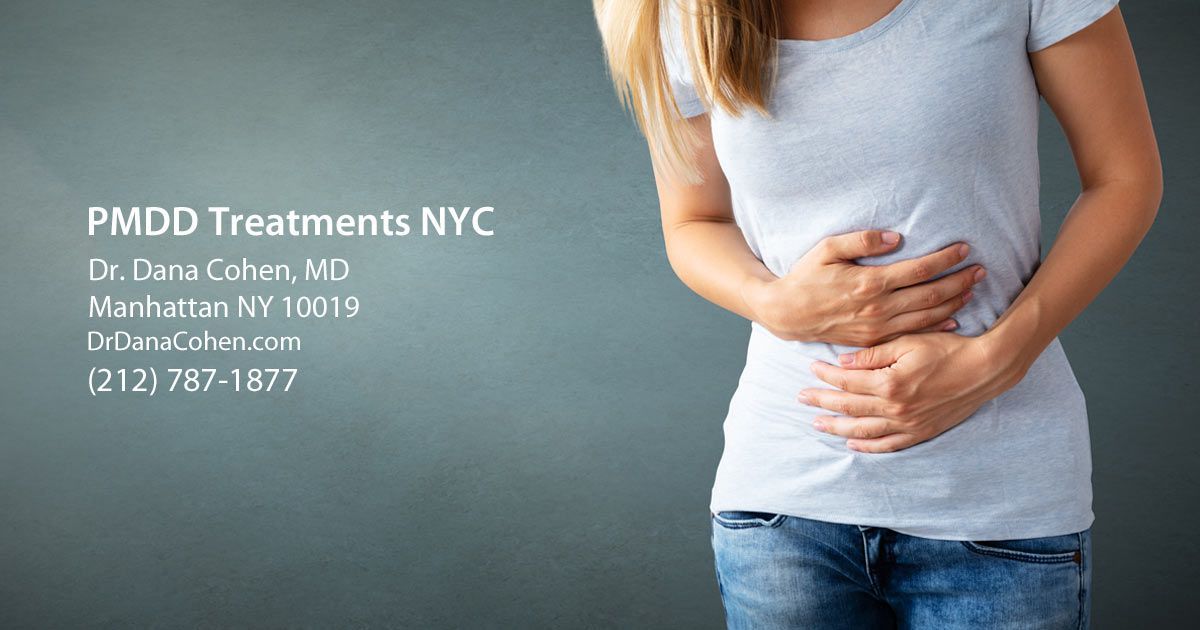What is Premenstrual Dysphoric Disorder (PMDD)?
PMDD is a severe form of premenstrual syndrome (PMS) that affects a small percentage of women during their menstrual cycle. It is characterized by various physical and emotional symptoms that occur in the days leading up to menstruation. These symptoms can range from mild to severe and significantly impact a woman's quality of life.
Who Is Likely to Experience frequent or Recurring PMDD
PMDD can affect women of reproductive age who experience severe symptoms in the days leading up to their menstrual cycle. While the exact cause of PMDD is not fully understood, certain factors may increase the likelihood of developing PMDD. Women with a history of mood disorders, such as depression or anxiety, may be more susceptible to PMDD. Additionally, women with a family history of PMDD or other mood disorders may also have a higher risk of developing the condition.
Sign-up today and receive ta FREE Dry Brushing Guide written by Dr. Dana Cohen
Hormonal changes, such as fluctuations in serotonin levels, may play a role in the development of PMDD as well. Overall, any woman who experiences severe physical and emotional symptoms that significantly impact their quality of life in the days before their period may be at risk for PMDD. It is essential to consult with a healthcare provider for an accurate diagnosis and appropriate treatment plan if you suspect you may have PMDD.
Common Symptoms of PMDD
The symptoms of PMDD can vary from woman to woman, but common symptoms include:
- Severe mood swings
- Depression
- Anxiety
- Irritability
- Fatigue
- Bloating
- Breast tenderness
- Headaches
- Difficulty concentrating
Common Causes of PMDD
The exact cause of PMDD is not fully understood, but it is believed to be related to hormonal fluctuations that occur during the menstrual cycle. Women with PMDD may have abnormal levels of serotonin or other neurotransmitters, which can lead to mood changes and physical symptoms associated with the disorder.

How PMDD is Diagnosed
PMDD is typically diagnosed based on the presence of specific symptoms that occur in a cyclical pattern before menstruation. To diagnose PMDD, a healthcare provider will typically conduct a thorough evaluation, which may include the following steps:
1. Medical History: The healthcare provider will review your medical history, including your menstrual cycle patterns and any premenstrual symptoms you may be experiencing. Be prepared to discuss the severity of your symptoms, how they impact your daily life, and any previous treatments you may have tried.
2. Symptom Tracking: Keeping a symptom diary can help you track the timing and severity of your symptoms over several menstrual cycles. This can provide valuable information for your healthcare provider to make an accurate diagnosis.
3. Physical Exam: A physical exam may be performed to rule out any underlying medical conditions that could be causing your symptoms. Your healthcare provider may also perform tests to rule out other conditions with similar symptoms.
4. Psychiatric Evaluation: In some cases, a psychiatric evaluation may be recommended to assess your mental health and rule out other mood disorders that may be contributing to your symptoms.
5. Diagnostic Criteria: To meet the diagnostic criteria for PMDD, you must experience at least five symptoms, including mood-related symptoms such as irritability, mood swings, and depression, and physical symptoms such as bloating, breast tenderness, and headaches. These symptoms must occur in the menstrual cycle's luteal phase (second half) and improve within a few days of menstruation.
Once a comprehensive evaluation has been completed and other medical conditions have been ruled out, a healthcare provider can diagnose PMDD. It is important to seek professional medical advice if you suspect you may have PMDD so that you can receive an accurate diagnosis and appropriate treatment.
Medical History of PMDD
PMDD was first recognized as a distinct disorder in the late 1980s when researchers began to study the unique symptoms and patterns of women who experienced severe PMS. Since then, PMDD has been included in the Diagnostic and Statistical Manual of Mental Disorders as a legitimate psychiatric condition.
How the Medical Field Treats PMDD
Traditional medical treatments for PMDD often involve the use of antidepressants, hormonal birth control, or other medications to help alleviate symptoms. While these treatments can be effective for some women, they may also come with unwanted side effects and are not always a long-term solution.
Treating PMDD with medications such as antidepressants or hormonal birth control can be effective for some women in managing symptoms. However, these medications may also come with potential side effects. Some common side effects of treating PMDD with medications may include weight gain or loss, nausea, frequent headaches, severe or chronic fatigue, decreased libido, mood changes, changes in menstrual cycle, insomnia or sleep disturbances, and digestive issues.
How PMDD is Treated Holistically by Dr. Dana Cohen
Dr. Dana Cohen takes a holistic approach to treating PMDD, focusing on addressing the underlying causes of the disorder rather than just managing symptoms. She may recommend dietary changes, stress management techniques, herbal supplements, and other natural remedies to help rebalance hormone levels and improve overall well-being.
What Can Happen if PMDD is Left Untreated
If left untreated, PMDD can have a significant impact on a woman's quality of life. Chronic symptoms of PMDD can lead to depression, anxiety, relationship difficulties, and decreased productivity at work or school. In severe cases, PMDD can even lead to suicidal thoughts or actions. It is important to seek treatment for PMDD to improve overall well-being and prevent potential long-term consequences.
Contact Dr. Dana Cohen MD to Discuss A Personalized Premenstrual Dysphoric Disorder Treatment
Premenstrual Dysphoric Disorder (PMDD) is a complex condition that affects many women during their menstrual cycle. While traditional medical treatments can help alleviate symptoms, holistic approaches like those offered by Dr. Dana Cohen provide a natural alternative to managing PMDD.
By addressing the underlying causes of the disorder, Dr. Cohen aims to help women achieve long-term relief and improved overall well-being. Seeking treatment for PMDD is important to prevent potential long-term consequences and enhance quality of life
Please contact Dr. Cohen today!












